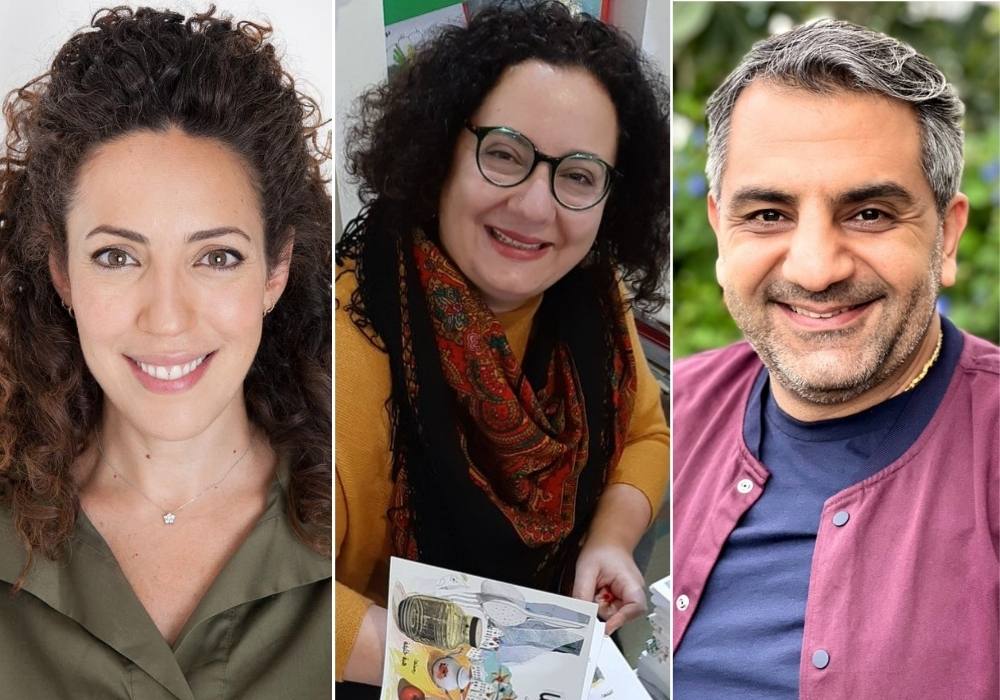PalFest – the Palestine Festival of Literature – took place this year in the last week of May. It was the festival’s sixth year and, as in other years, it flew in more than a dozen artists and writers to travel with the increasingly elaborate festival. For the first time, there were two separate groups: a southern group in Gaza and a northern group that traveled to Ramallah, Birzeit, Jerusalem, Hebron, Haifa, and Nablus.
Author Jeremy Harding traveled to more than a half-dozen cities with this year’s northern group. Harding, unlike most of the visiting authors, had traveled with PalFest before. But he made the trip yet again in large part because he wanted to teach more writing workshops to Palestinian students. Harding—a British translator, author, and memoirist—first traveled with PalFest in 2009, and has since taught workshops in Birzeit, Jenin, Nablus, and by video link to Gaza.
Harding’s workshops have largely been geared toward bilinguals who want to write in English. This year’s were hosted by the Birzeit-based Palestine Writing Workshop (PWW), which runs between 10 and 30 workshops a year, according to the organization’s founder, Morgan Cooper. The PWW workshops might be in Arabic, in English, or in a cross-lingual space.
At the blogging session that I ran during PalFest 2013, we naturally found ourselves working in two languages: some writers wanted to work in Arabic and others in English. A young Birzeit University student wanted to blog in Palestinian colloquial Arabic. A returnee who had grown up largely in the US could only write in English. Another young woman offered to translate this writer’s posts into Arabic.
Harding’s workshops, although mostly for English writers, also have made use of this multi-lingual space: English, colloquial Arabic, and Modern Standard Arabic. For instance, Harding often has his participants do a literary translation. They complete the translation on their own and then, in a later class, work together to improve one another’s translations.
“That’s an obvious advantage that these students would have over a domestic [UK] workshop,” Harding said.
There are three steps in Harding’s workshop-translation process. First, the students engage with a literary text on their own. Second, they check one another’s work and see if they’ve made any mistakes. Third, Harding said, they polish the translation and, as a class, “we see where we can take it, and see where the limit is, and how that works.”
Harding translates from the French, and has translated, among other things, Arthur Rimbaud’s Selected Poems and Letters. He likened the translation process to editing, “because you’re working with somebody else’s structures and sensibilities.” He added that working as a translator has helped improve his own work in that “it helps me to get a distance from my own prose at times.”
But that’s not what he’s hoping to achieve in giving translation work to the students. “I want them to feel the pleasure of creating a polished text in English.”
Over the years, Harding has connected with a number of emerging Palestinian writers, and “my only nagging problem with this is it’s very difficult to create a sustained piece of work.” The workshops, most of which run for 20 hours, require a lot of space to be cleared in people’s lives. And, once the workshops are over, “those gaps close over again.”
Harding would like workshop participants to get beyond the exercises and work on pieces that are 1,200 words and longer. But, for the most part, students haven’t been able to devote the time.
Certainly, in all societies and cultures, emerging writers are pressed for time. But this is different, Harding said. “People aren’t living under occupation in London. They know roughly how their day works. The army’s not going to step in and say: No, this is how your day’s going to look.”
Harding said he has written about his experiences with the Palestine Festival of Literature in the past. However, he’s become more and more focused on the workshop element of the fest. He says an author can research and write extensively about the situation of Palestinians, and yet “nothing seems to give. There doesn’t seem to be a relationship between knowing the argument, disseminating the argument, and change. So I just prefer to come here and do something that people want.”
These workshops haven’t always gone smoothly. The one Harding’s done with writers in Gaza took place over a video link, which he said didn’t work as well. That’s because, he said, “You can’t actually lean over someone’s shoulder and see how it’s going.” However, he added that spoken-word poet Remi Kanazi’s workshops were more suited to a video link.
Despite the technical and other frustrations, Harding said that helping would-be Palestinian writers has certainly been rewarding. “I wouldn’t want to come back if I didn’t think they were good.”
Meanwhile, the festival too keeps on developing. In its early years, PalFest was criticized for being too Anglophone. But each year, the festival has broadened its geographic and linguistic scope. In 2013, the events with the most energy were those that attempted to bring together multiple languages and genres. It has become an opportunity not just to bring writers to Palestine, but to fuse together new forms: in writing workshops, in literary events, and beyond.











